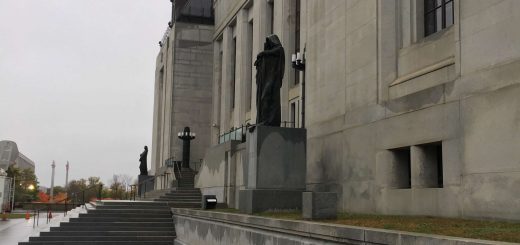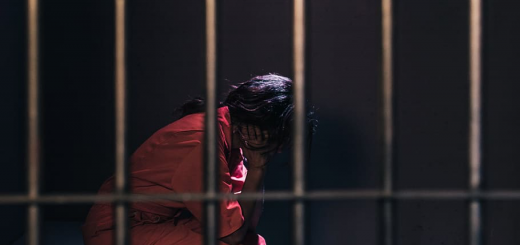Spencer: Has The Confessions Rule Changed… Again?
In R. v. Spencer, 2007 SCC 11 [Spencer], released last month, the Supreme Court of Canada (“SCC”) revisits the confessions rule, yet again. Although the SCC does not suggest that its judgment overrules any of its existing cases, there is a real danger that the decision will be taken as doing exactly that. This would be a shame.
Absent a clear indication from the SCC that it intends to change established doctrine, the judgment deserves to be taken at face value. That is, just as the majority claims, the case should be read as reflecting no more than the SCC showing deference to the factual determination of a trial judge on the admissibility of a confession.
The confessions rule operates to preclude the admission into evidence of an accused’s statement to a person in authority (i.e. a police officer) unless the Crown establishes beyond a reasonable doubt that the statement was “voluntarily” made.
Despite this straightforward rule, a relatively complex body of case law grew up around this requirement. A number of categorical rules developed, leading to the exclusion of confessions where:
- there had been “threats or promises” made to a suspect;
- a statement was made under “oppressive” circumstances;
- the suspect lacked an “operating mind” at the time the statement was made;
- the police engaged in “trickery” to obtain the statement.
In a decision that has proven to be one of the Supreme Court’s most controversial criminal procedure judgments in recent memory, in R. v. Oickle, [2000] 2 SCR 3 [Oickle] the SCC held that the confessions rule requires a contextual analysis. It rejected the use of hard and fast rules in deciding questions of voluntariness. Instead, in a case like Oickle, where the allegation of involuntariness was premised on alleged inducement preceding a confession, this meant that exclusion would not automatically follow, especially if the promise was not coupled with a quid pro quo.
In theory the Supreme Court’s holding in Oickle made much sense. Simply because an interrogating officer promises to get a suspect a sandwich after the interrogation is completed does not necessarily vitiate the voluntariness of a confession. Context matters greatly. If it is 11:30 in the morning, and the suspect had a hearty breakfast at 8:00 a.m., right before his arrest, then promising a suspect a sandwich after the interview is complete would hardly seem sufficient to undermine his free will and effectively deprive him of his choice to speak. Of course, if the suspect hasn’t eaten in days, the promise might have a very different impact.
Complaints about Oickle, however, have focussed less on what the Supreme Court had to say about the confessions rule per se, and more on how that rule was applied in that case. To many, on its facts, the case seemed a clear example of an induced and therefore involuntary confession. Nevertheless, the trial judge had found the confession voluntary, and the Supreme Court was not prepared to interfere with this factual finding, given that it was not the result of a “palpable and overriding error”. Yes, the police might have engaged in tactics that made Oickle amenable to speaking, but there was no inducement combined with a quid pro quo. No, “if you confess we promise to give you [blank]”.
For many, however, the result seemed to signal that voluntariness could be established much more easily than before. This is an all too common phenomenon. Especially in busy trial courts, the outcome of a Supreme Court judgment can matter just as much, if not more, than what it actually has to say on a topic. For those too busy to read the judgment carefully, the message that emerged from Oickle is that “voluntariness” does not import an overly exacting standard. That, of course, is not what the case says, but in practice that’s what the case came to mean.
With that background, it is hard not to be pessimistic about how the Supreme Court’s judgment in Spencer will likely be received in the trial courts.
In Spencer the majority seems to be applying Oickle, not changing it [paras 11 to 14]. Nevertheless, for many, despite the fact that the Supreme Court never says as much, the result will be taken as signaling a new direction.
Especially confusing will be the fact that in Spencer there was indeed the sort of quid pro quo that was lacking in Oickle. In particular, Spencer, who was under arrest for a string of serious robberies, wanted to speak with his girlfriend (who was also under arrest). At times during his lengthy interrogation, Spencer had in fact tried to strike a deal with his interrogators, seeking an assurance that his girlfriend would not be charged in return for his confession. This was an offer that the interrogating officer repeatedly turned down, explaining to Spencer that he could not make such a deal. Nevertheless, the interrogator did promise to let Spencer see his girlfriend after he confessed.
The entire interrogation was videotaped from start to finish, so there was no factual contest about what was said in the interrogation room. The factual issue, however, was what effect the inducement – about seeing his girlfriend – had on Spencer’s choice to make a statement. Is this sort of promise a legitimate interrogation technique or an impermissible tactic that will vitiate a suspect’s free choice? The answer that emerges from the judgment is, that, it depends. As Justice Deschamps explained for the majority at paragraph 15:
… while a quid pro quo is an important factor in establishing the existence of a threat or promise, it is the strength of the inducement, having regard to the particular individual and his or her circumstances, that is to be considered in the overall contextual analysis into the voluntariness of the accused’s statement.
Here, the Supreme Court notes that the trial judge described Spencer as “aggressive and a ‘mature and savvy participant’, and that he unsuccessfully attempted many times to secure ‘deals’ with the police.” [para 21] Given all of this, the Supreme Court was not prepared to conclude that the trial judge committed a “palpable and overriding error” in deciding that Spencer’s confession was made voluntarily.
In other words, a careful reading shows that Spencer changes little. One can only hope that lower courts take the Supreme Court at its word.







Join the conversation